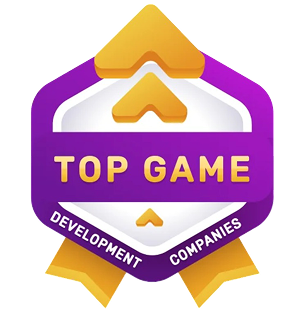Supply Chain Management (SCM) software is an essential tool that businesses utilize to optimize their supply chain operations. In an era where global supply chains are increasingly complex, having effective SCM solutions becomes critical. These systems help manage various aspects of the supply chain, including inventory management, demand forecasting, logistics, and supplier collaboration. By implementing the right SCM software, organizations can achieve significant cost savings, enhanced efficiency, and improved customer satisfaction.
The demand for efficient supply chain solutions has surged, and organizations must adapt to stay competitive. Effective supply chain software plays a vital role in this adaptation by providing businesses with the tools they need to respond quickly to changing market conditions and consumer demands.

When evaluating different SCM solutions, it is essential to consider the key features they offer. The best supply chain software solutions provide a variety of functionalities that enhance operational efficiency:
- Real-Time Analytics: This feature allows businesses to access real-time data on supply chain performance, enabling them to make informed decisions quickly.
- Inventory Management: Effective inventory management tools help businesses track stock levels, reduce excess inventory, and prevent stockouts, ultimately leading to better resource allocation.
- Demand Forecasting: Advanced demand forecasting capabilities use historical data and market trends to accurately predict future demand, helping organizations maintain optimal inventory levels.
- Supplier Relationship Management: Strong SCM software includes tools for managing supplier relationships, and facilitating better communication and collaboration, which ultimately leads to improved procurement processes.
- Logistics and Transportation Management: Integrated logistics features help businesses manage transportation costs, optimize routes, and track shipments in real-time, enhancing overall efficiency.
- Order Management: Automated order management simplifies the process of processing, tracking, and fulfilling customer orders, leading to improved customer experiences.
- Integration Capabilities: The ability to integrate with existing systems like ERP (Enterprise Resource Planning) and CRM (Customer Relationship Management) is crucial for maintaining a seamless workflow.
By understanding these features, businesses can better assess which SCM software solutions will meet their specific needs.
The cost of SCM software can vary widely based on several factors, including the size of the business, the complexity of operations, and the specific features required. Businesses should consider the following pricing models:
- Subscription-Based Pricing: Many cloud-based SCM solutions operate on a subscription model, charging businesses monthly or annually. Prices can range from $100 to $5,000 per month, depending on the features included and the number of users.
- One-Time License Fee: On-premise solutions often require a one-time purchase price, which can range from $5,000 to over $100,000 based on the complexity of the software.
- Additional Costs: Businesses need to account for additional costs, such as implementation fees, training, and ongoing support. These costs can add an extra 20–30% to the initial investment.
Understanding the total cost of ownership is crucial for businesses to effectively budget for SCM software and ensure they are making a wise investment.

The bar graph above illustrates the monthly costs of various supply chain management software solutions available in the market. As seen, Software D has the highest monthly cost at $400, reflecting its advanced features and capabilities. In contrast, Software E offers a more budget-friendly option at $150 per month. Understanding these costs can help businesses make informed decisions when selecting the right SCM software for their needs.

As the demand for efficient supply chain management continues to grow, several software solutions stand out for their features and capabilities. Here are some of the best supply chain software solutions for 2024:
- SAP Integrated Business Planning (IBP): Renowned for its advanced analytics and forecasting capabilities, SAP IBP offers a comprehensive range of supply chain management features suitable for large enterprises.
- Oracle SCM Cloud: This solution provides end-to-end supply chain visibility, robust demand management, and supply planning functionalities. Its cloud-based architecture allows for flexibility and scalability.
- Microsoft Dynamics 365 Supply Chain Management: Offering strong integration with other Microsoft products, this solution provides real-time visibility and data analytics to optimize operations.
- Kinaxis RapidResponse: Known for its agility and real-time data processing capabilities, Kinaxis enables businesses to respond quickly to market changes and supply chain disruptions.
- Infor CloudSuite Supply Chain: With a focus on manufacturing and distribution, Infor CloudSuite offers industry-specific features that enhance supply chain efficiency and performance.
Each of these software solutions brings unique strengths to the table, making them suitable for various industries and organizational needs.
Read also: Seamless Supply Chain Solutions: Unlocking Potential in Transportation & Logistics
Despite advancements in technology, businesses face several challenges in supply chain management. Understanding these challenges is crucial for developing effective strategies and solutions:
- Lack of Visibility: Many organizations struggle with limited visibility across their supply chains, making tracking inventory and responding to demand fluctuations difficult.
- Inefficient Processes: Manual processes can lead to errors, delays, and increased operational costs, hindering overall efficiency.
- Supplier Disruptions: Supply chain disruptions caused by supplier issues, geopolitical events, or natural disasters can severely impact operations and delivery timelines.
- Demand Variability: Fluctuating consumer demand makes it challenging to maintain optimal inventory levels and meet customer expectations.
- Compliance and Regulatory Issues: Keeping up with changing regulations and compliance standards can add complexity to supply chain operations.
By recognizing these challenges, businesses can proactively address them through effective SCM solutions.

To address common supply chain challenges, businesses can leverage SCM software solutions that offer specific features designed to mitigate these issues:
- Enhanced Visibility: SCM software provides real-time tracking and analytics, improving visibility across the supply chain and enabling businesses to make informed decisions.
- Automation: Automating manual processes reduces errors and increases efficiency, allowing employees to focus on strategic tasks rather than routine operations.
- Supplier Collaboration Tools: Features that facilitate communication with suppliers help mitigate disruptions and build stronger relationships, enhancing the overall supply chain.
- Demand Planning Tools: Advanced forecasting capabilities enable businesses to anticipate demand changes and adjust inventory levels accordingly, improving service levels.
- Compliance Management Features: Many SCM solutions include compliance tracking and reporting features to help businesses stay compliant with regulations and avoid penalties.
By utilizing these software solutions, companies can navigate supply chain challenges effectively and maintain a competitive edge.
Selecting the right SCM software is crucial for maximizing its benefits. Here are some key factors to consider when making your choice:
- Business Needs Assessment: Evaluate your specific business needs and challenges to identify the essential features required in SCM software. This ensures that you select a solution that aligns with your operational goals.
- Scalability: Choose software that can grow with your business, accommodating increased complexity as your operations expand. Scalability is essential for long-term success.
- User-Friendly Interface: A user-friendly interface can significantly impact user adoption and reduce training time, ensuring your team can use the software effectively.
- Customer Support: Consider the level of customer support offered by the vendor, including training resources and technical assistance. Good support can enhance the value of your investment.
- Vendor Reputation: Research the vendor’s reputation in the market, including customer reviews and case studies, to ensure they deliver reliable solutions and services.
Taking the time to assess these factors will help businesses make informed decisions when choosing SCM software that meets their unique requirements.
For optimal efficiency, SCM software should integrate seamlessly with other enterprise systems such as ERP (Enterprise Resource Planning) and CRM (Customer Relationship Management). Benefits of integration include:
- Improved Data Accuracy: Integrating systems eliminates data silos, ensuring that all departments have access to accurate and up-to-date information, and reducing errors in decision-making.
- Streamlined Processes: Integration allows for streamlined processes across departments, reducing delays and improving collaboration between teams.
- Enhanced Reporting: Combined data from various systems enables comprehensive reporting and analysis, helping businesses make better strategic decisions based on real-time information.
- Cost Savings: Reducing manual data entry and errors through integration can lead to significant cost savings over time, improving the overall operational efficiency and accuracy of supply chain processes. This not only minimizes delays but also enhances decision-making, leading to better resource allocation and increased profitability.
You may also like: Revolutionize Your Business: Top Supply Chain Management Software Solutions
The landscape of supply chain management is constantly evolving, influenced by technological advancements and changing market dynamics. Here are some key trends shaping the future of SCM technology:
- Artificial Intelligence (AI): AI is revolutionizing supply chain operations by enhancing demand forecasting, optimizing inventory management, and enabling predictive analytics. Businesses leveraging AI can make data-driven decisions that improve efficiency and responsiveness.
- Blockchain Technology: Blockchain provides transparency and traceability across the supply chain. By recording transactions on an immutable ledger, businesses can reduce fraud, enhance accountability, and improve collaboration with suppliers and partners.
- IoT Integration: The Internet of Things (IoT) enables real-time tracking of assets and inventory through connected devices. This technology allows businesses to monitor the condition of goods, optimize shipping routes, and improve overall supply chain visibility.
- Sustainability Initiatives: There is a growing emphasis on sustainable supply chain practices. Companies are increasingly looking for SCM solutions that help reduce their carbon footprint, minimize waste, and promote ethical sourcing.
- Cloud-Based Solutions: The shift toward cloud-based SCM software is expected to continue, providing businesses with greater flexibility, scalability, and access to advanced features without significant upfront investments.
By staying abreast of these trends, businesses can position themselves for success and remain competitive in a rapidly changing environment.

Implementing SCM software is a significant undertaking that requires careful planning and execution. Here’s a step-by-step guide to help businesses navigate the implementation process:
- Define Objectives: Clearly outline your business objectives for implementing SCM software. Identify the specific challenges you aim to address and the outcomes you expect to achieve.
- Select the Right Software: Based on your objectives, evaluate different SCM solutions and select the one that best aligns with your needs. Consider factors such as features, scalability, and vendor support.
- Assemble a Project Team: Form a dedicated project team that includes stakeholders from various departments, such as supply chain, IT, and finance. This team will be responsible for overseeing the implementation process.
- Develop an Implementation Plan: Create a detailed implementation plan that outlines timelines, responsibilities, and milestones. This plan will serve as a roadmap for the project.
- Data Migration: Prepare for data migration by cleaning and organizing existing data. Ensure that all relevant data is accurately transferred to the new system to maintain continuity.
- Customization and Configuration: Customize the SCM software to fit your specific business processes and requirements. This may include setting up workflows, user roles, and reporting features.
- Training: Conduct comprehensive training sessions for end-users to ensure they are familiar with the new software and its features. Effective training is crucial for successful adoption.
- Go Live: Launch the SCM software and monitor its performance closely. Be prepared to address any issues that arise during the initial rollout.
- Continuous Improvement: After implementation, continuously assess the software’s performance and gather feedback from users. Use this feedback to make necessary adjustments and enhancements.
By following this guide, businesses can implement SCM software effectively and maximize its benefits.
At Kuchoriya Techsoft, we have successfully helped various businesses implement SCM software solutions tailored to their specific needs. Here are a few case studies highlighting our expertise:
Case Study 1: Retail Company
A large retail chain faced challenges with inventory management and demand forecasting. We implemented an integrated SCM solution that provided real-time analytics and enhanced visibility across the supply chain. As a result, the client reduced inventory costs by 25% and improved order fulfillment rates by 30%.
Case Study 2: Manufacturing Firm
A manufacturing company struggled with supplier collaboration and inefficient processes. By adopting our SCM software, the client streamlined communication with suppliers, automated order processing, and improved production scheduling. This led to a 20% increase in overall operational efficiency.
Case Study 3: E-commerce Business
An e-commerce startup needed a scalable SCM solution to support rapid growth. We implemented a cloud-based SCM platform that integrated seamlessly with their existing systems. The client experienced a 40% reduction in order processing times and enhanced customer satisfaction.
These case studies illustrate how Kuchoriya Techsoft delivers effective SCM solutions that drive tangible results for our clients.
In conclusion, Supply Chain Management Software Solutions are indispensable for businesses seeking to enhance their operational efficiency and adaptability in today's competitive landscape. With the right SCM software, organizations can overcome common challenges, optimize their supply chain processes, and improve customer satisfaction. As technology continues to evolve, staying updated with the latest trends and implementing effective SCM solutions will be critical for long-term success.
By leveraging our expertise at Kuchoriya Techsoft, businesses can navigate the complexities of supply chain management and position themselves for growth in an increasingly digital world. If you're ready to explore how SCM software can transform your operations, contact us today.
The Referral Partner Program by Kuchoriya Techsoft provides a smooth method to generate continuous revenue in the long run. You can receive financial rewards by referring your contacts to us when you team up with us. Our program was created to be stress-free, enabling you to easily reap the rewards. Promote the exceptional services offered by a reputable software development company to see an increase in recommendations through our excellent eCommerce web development and custom blockchain app development services.
Furthermore, our Referral Partner Program helps to enhance the sales and entrepreneurial skills of your referrals over the long run. Through partnering with Kuchoriya Techsoft, your connections will have access to state-of-the-art technologies and skilled development teams that enhance their business operations. This relationship, which benefits both parties, enhances their success and cements your position as a critical factor in their expansion. Come and be a part of our team today to experience the benefits of earning money while also helping your network achieve long-term success.
Q. What is SCM software, and how does it benefit my business?
A. SCM software helps businesses streamline their supply chain operations, including inventory management, demand forecasting, and supplier collaboration. By using SCM software solutions, you can improve efficiency, reduce costs, and enhance visibility across your entire supply chain.
Q. What are the key features of SCM software?
A. Top SCM solutions include features like real-time tracking, inventory optimization, demand planning, supplier management, and integration with enterprise systems such as ERP and CRM.
Q. How much does supply chain management software cost?
A. The cost of SCM software can vary depending on the features, scalability, and deployment model (cloud-based or on-premise). Prices typically range from $50 to $300 per user per month for cloud solutions, with additional customization and integration costs.
Q. What are the common challenges in supply chain management, and how does SCM software solve them?
A. Common challenges include inefficient inventory management, supplier communication, and unpredictable demand. SCM software helps overcome these challenges by providing real-time insights, improving collaboration with suppliers, and automating workflows.
Q. How do I choose the right SCM software for my business?
A. When selecting the best SCM software, consider your business size, industry, specific supply chain challenges, and future growth. Look for features like scalability, ease of integration, and vendor support.
Q. Can SCM software integrate with my existing systems like ERP or CRM?
A. Yes, most advanced SCM software solutions are designed to integrate seamlessly with ERP systems and CRM platforms, enabling a unified approach to managing your entire supply chain and customer relationships.
Q. What are the future trends in supply chain management technology?
A. The future of SCM technology includes AI-powered demand forecasting, IoT integration for real-time asset tracking, blockchain for transparency, and a shift toward sustainability initiatives and cloud-based solutions.
Q. How long does it take to implement SCM software?
A. The implementation timeline for SCM software varies based on the complexity of your supply chain and the solution you choose. On average, it takes 3-6 months, but this can extend with larger organizations or customized solutions.
Q. Do you offer support and training for SCM software implementation?
A. At Kuchoriya Techsoft, we provide full implementation support, including data migration, system customization, and user training to ensure your team is equipped to leverage your new SCM software efficiently.
Q. Can you provide case studies of businesses that have successfully implemented SCM software?
A. Yes, we have case studies showcasing how Kuchoriya Techsoft helped businesses in industries like retail, manufacturing, and e-commerce improve their supply chain efficiency with our SCM solutions. These case studies highlight significant results such as cost reductions and enhanced operational efficiency.


















